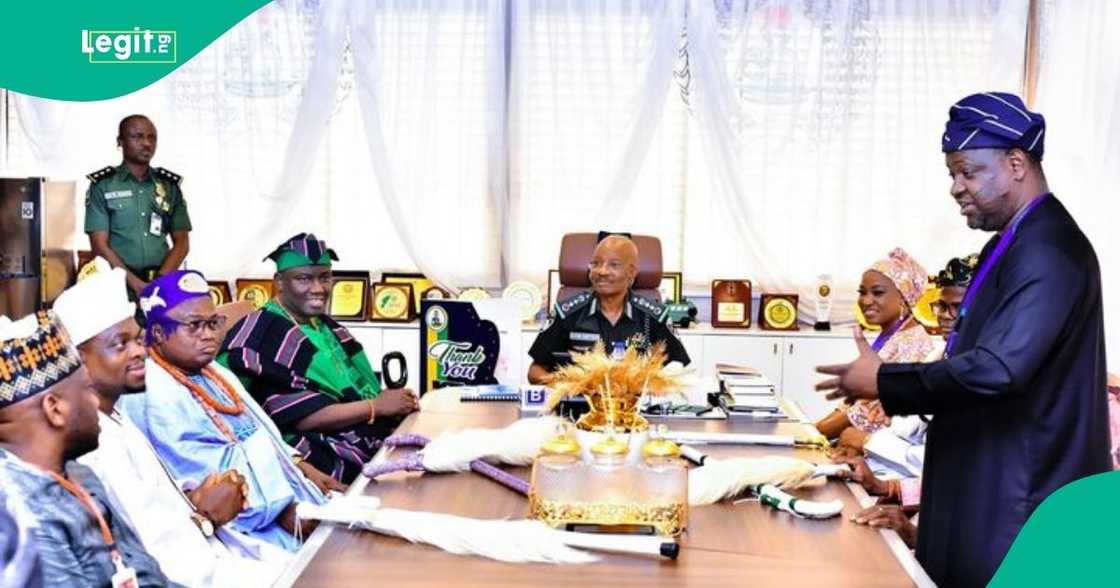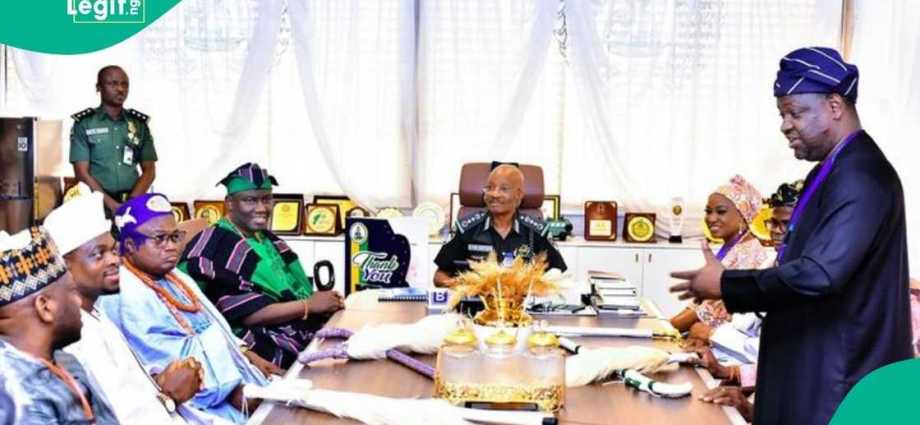“`html
Alaafin of Oyo Leads Yoruba Monarchs to Abuja, Secures Legislative and Security Backing
Historic Meeting with House Speaker and Police Chief Strengthens Traditional Institutions

In a significant move to bolster the role of traditional institutions in national affairs, the Alaafin of Oyo, Oba Akeem Abimbola Owoade, led a delegation of prominent Yoruba monarchs to Nigeria’s capital on Wednesday. The high-profile visit included strategic meetings with both legislative and security leaders, yielding concrete commitments for enhanced collaboration.
Who Joined the Royal Delegation?
The delegation comprised:
- Oba Owoade’s wife, Abiwumi Owoade
- Prince Akeem Adeyemi (Oyo federal constituency representative)
- Alhaji AbdulWasiu Adebisi
- The Ataoja of Osogbo
- The Olu of Ilaro
- The Oloro of Oro
- The Olusin of Ijora Isin
Federal lawmakers and South-West police coordinator DIG Adebowale Williams also participated in the discussions, underscoring the cross-sector importance of the meetings.
Constitutional Recognition for Monarchs Moves Forward
House Speaker Tajudeen Abass described the dialogue with the royal delegation as “warm, engaging, and deeply enriching,” revealing concrete legislative progress for traditional rulers. The Speaker disclosed that a bill granting constitutional recognition to monarchs is currently advancing through the legislative process.
“The green chamber has always supported our monarchs and will continue to do so. In 2025, we are prioritizing the passage of a bill to give them constitutional recognition. We will give it speedy passage,” Abass affirmed.
The Speaker further detailed his personal legislative efforts supporting traditional institutions, including sponsored bills and motions that recognize their vital governance role at the grassroots level.
Police Commit to Stronger Traditional Institution Partnership
At Force Headquarters, Inspector-General of Police Kayode Egbetokun emphasized the critical security role traditional rulers play as community anchors. The police chief outlined plans for enhanced cooperation between law enforcement and traditional authorities.
“Traditional rulers are vital partners in sustaining peace and stability. We will ensure robust collaboration with them to enhance inclusivity at the grassroots and to achieve sustainable peace and development,” Egbetokun stated.
The IGP specifically pledged to:
- Strengthen community policing initiatives through royal input
- Increase intelligence-sharing with traditional leaders
- Address South-West security challenges through coordinated efforts
Why This Matters for Nigerian Governance
This unprecedented convergence of traditional and modern governance structures signals several important developments:
- Institutional Validation: The meetings demonstrate growing official recognition of traditional rulers’ governance role beyond ceremonial functions.
- Security Strategy Shift: Police acknowledgment of monarchs as security partners marks a tactical evolution in addressing Nigeria’s complex security landscape.
- Legislative Milestone: The constitutional recognition bill could reshape Nigeria’s governance framework by formally incorporating traditional institutions.
Historical Context and Future Implications
Traditional rulers have long served as cultural custodians and community arbiters in Nigeria, though their formal governance role diminished post-independence. This Abuja engagement suggests potential restoration of their constitutional standing, blending Nigeria’s rich traditional heritage with modern democratic structures.
Political analysts suggest the move could:
- Enhance grassroots governance effectiveness
- Improve conflict resolution mechanisms
- Strengthen cultural preservation efforts
- Provide alternative security architecture in volatile regions
As Nigeria approaches the 2025 legislative timeline for the traditional rulers bill, all eyes will be on how this historic convergence between palace and parliament translates into tangible governance improvements for Nigeria’s diverse communities.
“`

